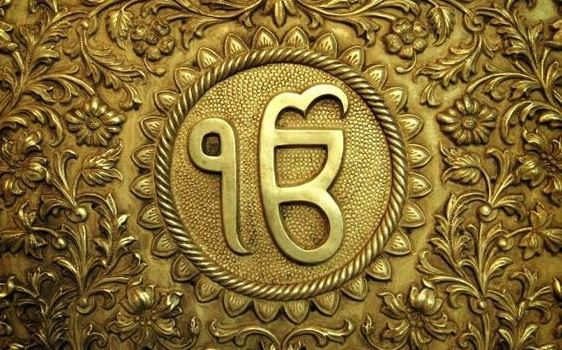Ek Onkar: Understanding the Sikh Concept of One Universal Creator
“Ek Onkar” – the words alone carry a depth that has resonated across centuries and souls. For Sikhs and countless others who encounter this teaching, “Ek Onkar” is more than a belief; it is a way of seeing, feeling, and being in the world. At its essence, it means “There is One Universal Creator.” But within this simplicity lies an eternal truth – a message that brings comfort, unity, and a reminder of our shared existence.
Unfolding the Meaning of Ek Onkar: One Creator, One Heart
The phrase “Ek Onkar” is a merging of two words: “Ek,” meaning “One,” and “Onkar,” referring to the creative force, the Divine itself. It’s a simple statement of existence – an affirmation that our lives and all creation are knotted in oneness. Guru Nanak, who gifted the world with these teachings, saw “Ek Onkar” as a way to go beyond divisions, to feel the sacredness of unity, and to find the Divine not outside us but in everything around us.
“There is no Hindu, there is no Muslim, only humans created by the One.”
Through “Ek Onkar,” Guru Nanak Dev Ji taught us that we are part of the same source regardless of our faith, status, or place. This profound sense of interconnectedness drives the Sikh faith and calls on us to look past our differences to recognize the common thread of life.
The Revelation of Oneness: Guru Nanak’s Enlightening Vision
In Guru Nanak’s time, society was fragmented – by caste, religion, and prejudice. Born into a Hindu family in 1469, Guru Nanak was deeply aware of these barriers and, from an early age, questioned the structures around him. The story of his spiritual revelation, which transformed his life and the lives of millions, tells of a moment at the age of 30 when he disappeared for three days along a riverbank. Upon his return, he spoke his now-famous words: “Na koi Hindu, Na koi Musalman – “There is no Hindu, there is no Muslim.” He had seen the Divine and emerged with the “Ek Onkar” message, a call for unity and compassion.
Guru Nanak’s vision was a world where every person saw the Divine in each other. For him, “Ek Onkar” was more than philosophy; it was an invitation to live with an open heart, to see the sacred in every soul, and to move beyond religious labels. He wanted humanity to find strength in their shared existence, bound by the same spirit of life and love.
Ek Onkar and the Mool Mantar: A Guiding Light
The teaching of “Ek Onkar” introduces the “Mool Mantar,” the Root Mantra of Sikhism:
Ek Onkar, Sat Naam, Karta Purakh, Nirbhau, Nirvair, Akaal Moorat, Ajooni, Saibhang, Gur Prasad.
“One Universal Creator. Truth is His Name. He is the Creator, without fear, without hatred, timeless in form, unborn, self-existent, known through the Guru’s grace.”
These words are more than a mantra; they are a spiritual blueprint. Each line invites us to let go of our ego, find courage, and embrace others without fear or hate. In reciting these words, Sikhs carry the understanding of “Ek Onkar” within them, drawing strength from the knowledge that they are part of a boundless and compassionate Divine.
The “Mool Mantar” helps us recognize that the Creator is timeless, present in everyone and everything and that through humility and devotion, we too can experience this boundless love. In times of hardship or confusion, these words are a beacon, a reminder that we belong to a greater whole, that “Ek Onkar” – the One who is always near.
Living Ek Onkar: Seeing the Divine in All
Guru Nanak’s teachings encourage us to carry “Ek Onkar” into every part of our lives. If we believe that all people are reflections of the same Divine, then kindness and compassion naturally follow. This belief underpins “Seva” (selfless service) and “Simran” (remembrance of God), which are core Sikh practices. Sikhs see “Seva” as a way to serve the Divine present in others, whether through “Langar” – the free meal offered to all – or through acts of compassion and charity.
“See the Divine light in all and be kind to every being.”
– Guru Nanak
Through “Seva,” Sikhs practice the spirit of “Ek Onkar,” building bonds and spreading love among all, regardless of background. The world becomes a little softer and kinder with every act of service done in the spirit of “Ek Onkar.” This teaching isn’t restricted to the walls of a Gurdwara; it’s a way of life, inspiring countless Sikhs to extend compassion and understanding to all.
A Message for Our Divided Times: Ek Onkar as Unity
In a world filled with division, “Ek Onkar” speaks to us with even greater urgency. Guru Nanak’s message reminds us that we are not different, not separate. He saw no strangers, no barriers; he saw only humans, all children of the same Creator. His vision compels us to look beyond what separates us and celebrate what unites us.
Imagine the world if we truly lived “Ek Onkar”—where each person is honored, loved, and respected simply for being a reflection of the Divine. There would be no room for hatred or fear, only understanding and shared humanity.
“Let compassion be your mosque, faith be your prayer mat, and justice your Holy Book.”
– Guru Nanak
This call to unity and equality has been a guiding light for centuries and can help us navigate today’s struggles. It teaches us that even though we may come from different walks of life, we share the same source, Creator, and journey.
Ek Onkar: A Legacy of Love and Oneness
“Ek Onkar” is more than a symbol or philosophy; it’s an invitation to live fully, see the Divine in each person, and feel unity in all things. Guru Nanak’s message calls us to approach the world with a heart full of compassion, serve selflessly, and honor life’s sacredness in every form. In embracing “Ek Onkar,” we find peace in knowing we are never alone, that we are all connected, and that the Divine flows through each of us, uniting us in an endless circle of love.
Living with “Ek Onkar” means we are called to see beyond ourselves, to recognize that the beauty in others reflects the beauty within us and that the One who created us all shines through every soul. Guru Nanak’s words remind us of our shared purpose: love, serve, and live as one. Through “Ek Onkar,” we find our place in a world filled with divinity, forever intertwined in the light of the One Creator.


Leave a Reply